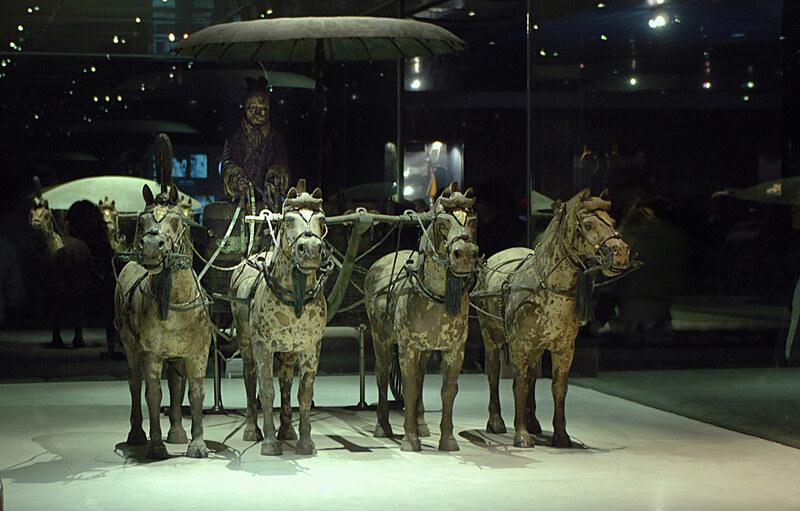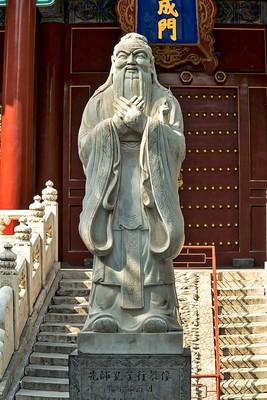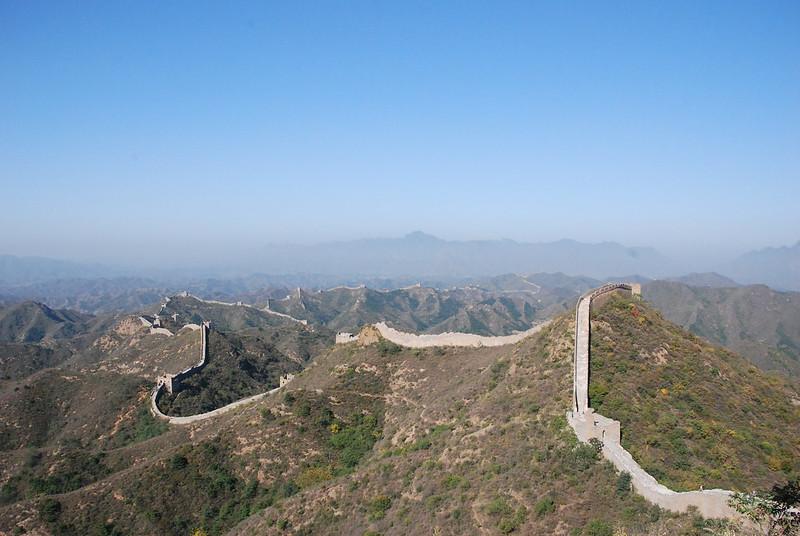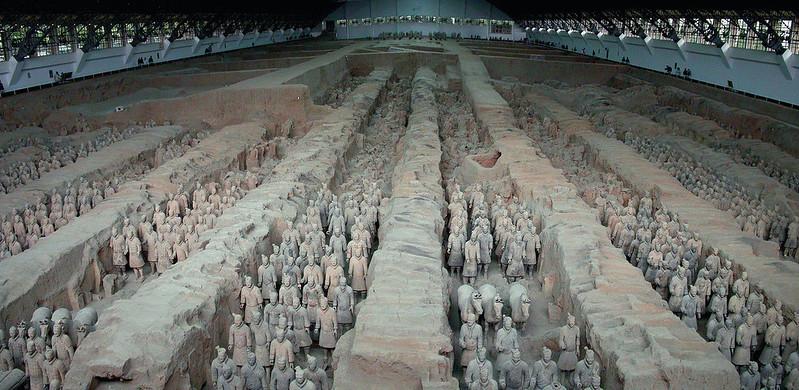Referring to China, anyone knows Qin Shi Huang. He started the Chinese monarchy empire that lasted nearly two millennia and left behind many colossal works such as the Great Wall of China and the Tomb of Qin Shi Huang.
Let’s explore the following facts about the first Imperial Dynasty of China to understand more about Chinese history! They are interesting and useful knowledge:
1. The founder of the Qin Dynasty was FEIZI
In 221 BC, Qin Shi Huang unified China. In the fourth century BC, the state of Qin became the country with the most powerful economic and military potential.
Based on this advantage, the Qin Dynasty destroyed their opponents in turn, ending the division of the region.
2. The decisive period of the Qin Dynasty was after SHANG YANG came to power
Shang Yang introduced a series of reform and development strategies, such as emphasizing agriculture and mulberry, rewarding military merit, implementing unified measurement, and establishing a county system.
Qin Shi Huang then trusted and respected this person.

After the Shangyang reform, Qin’s economy developed. The army’s combat effectiveness was constantly increasing, becoming the most powerful feudal state at the end of the Warring States period.
The key to Shang Yang’s successful reform and the rise of Qin was respect for morality and law.
3. The first imperial dynasty in China
Qin Shi Huang was the king who started to build a centralized feudal government.
King Qin proclaimed himself emperor and considered himself the supreme being with absolute power, the one who decided all the affairs of the country.
Under the king is a system of mandarins and martial arts. The prime minister is the head of the mandarins.
The lieutenant is the head of the martial arts officials. These are the two highest officials who help the emperor rule the country.
In addition, some officials keep finance and food. The emperor had the military power to maintain social order, suppress domestic rebellions, and wage wars of aggression with outsiders.
4. The 15-year-old brand
The Qin dynasty left a legacy of centralization and a bureaucratic system to later dynasties. However, the Qin Dynasty lasted only 15 years before it collapsed.
At that time, the uprisings of the peasants revolted. Liu Bang, a feudal landowner, ascended the throne and established the Han Dynasty (206 BC – 220 BC).
5. The truth when the Qin Dynasty came to power
During the reign of Emperor Qin II, the laws and regulations established during the reign of Qin Shi Huang changed for the worse.
Qin Er Shi intensified the exploitation and oppression of civilians. Peasants suffered a lot of oppression. For this reason, ordinary people lived very hard.
6. The Qin Dynasty came to rule and suppressed Confucianism
Everyone knows that the Qin Dynasty ruled the country in the way of legalism, and all legal systems embodied legalism.

He had an attitude to suppress Confucianism, even burning books to bury Confucianism. However, Confucianism was not outlawed. On the contrary, the legal system of the Qin Dynasty reflected Confucianism everywhere.
7. The Qin Dynasty created the Chinese writing system
The unification of writing and language was an achievement of the Qin Dynasty. After the country’s unification, Qin Shi Huang created a writing system to circulate.
This system helps to increase the writing speed many times over. The record-keeping was also more convenient.
8. Qin Dynasty and great construction projects
Although he was only consul for 37 years, he completed many great works.
- Qin Zhidao: This highway passes through 14 counties in China.
- Dujiangyan: This is the only and oldest non-dam irrigation project in the world (about 2000 years) that is still ineffective.
- Great Wall: The wall connected the old city walls to defend the Xiongnu.
- Zhengzhou: It brings water to the Central Plains region, helping this place become fertile land and leading to the economic growth of the Qin Kingdom.
- Tomb of Qin Shi Huang: This is an underground palace.

9. The Qin Dynasty buried Confucian scholars and burned books
Speaking of the famous historical event of Burning books, and burying Confucianists, we will immediately remember Qin Shi Huang.
He was a tyrannical and cruel emperor. To strengthen his autocratic rule, he burned classics and persecuted Confucian scholars. This event dealt a blow to the inheritance of Chinese culture.
10. The origin of the name of the Qin Dynasty comes from Europe
You may not know the name China today originates from the Qin Dynasty. The reason is that in Western texts, they call the Qin Dynasty Chin.
History of the Qin Dynasty
The Qin Dynasty (221 BC – 206 BC), the first centralized state in Chinese history, took the Han clan as its subject and unified many ethnic groups.
From 230 BC to 221 BC, Qin Shi Huang Yingzheng destroyed six countries in the Kanto region and completed national unification.
He then attacked Xiongnu in the north and conquered Baiyue in the south. He pioneered the imperial system, the central official system represented by Sangong and Jiuqing, and the county system.
In addition, he completely broke the Shiqingshilu system since the Western Zhou period. This king maintained the country’s unity and strengthened the central government’s control over the localities.
It laid the foundation for the rule of the unified Chinese dynasty. However, the tyranny of the Qin Dynasty also caused class conflict and social unrest, leading to the first large-scale peasant uprising in Chinese history.
In 206 BC, the Prince of Qin surrendered to Liu Bang. In just 15 years, the Qin Dynasty was on the verge of extinction.
Conclusion
Although the Qin Dynasty only existed for 15 years, the Qin Dynasty laid the foundation for China today.
The contributions of Qin Shi Huang are undeniable. Did you find these facts interesting? Let us know in the comments!
Many other facts about China may interest you, visit our website to learn more!

